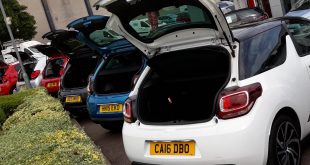New research suggests that 71% of drivers around the world believe they can purchase a self-driving car immediately.
The #TestingAutomation study, commissioned by Thatcham Research, Euro NCAP and Global NCAP, discovered potentially dangerous false impressions around the apparent self-driving capability of new cars and the safe usage of highway assist technologies.
Key findings from the study include:
- 7 in 10 (71%) drivers globally and 53% in the UK believe that they can purchase a car that can drive itself today
- The top three brands drivers believe sell fully self-driving cars today are: Tesla (40%), BMW (27%) and Audi (21%)
- One in five (18%) British motorists think that a car marketed as being capable of automatic steering, braking and acceleration allows them to “sit back and relax and let the car do the driving”
- Many respondents said that they would be tempted to break the law while using an Assisted Driving system by texting on a mobile phone (34%), making a hand-held call (33%) or having a brief nap (11%)
- More than half (51%) of drivers believe they would be liable in the event of a crash when using Assisted Driving systems.
“Some car makers are designing and marketing vehicles in such a way that drivers believe they can relinquish control,” said Matthew Avery of Thatcham Research.
“Car makers want to gain competitive edge by referring to ‘self-driving’ or ‘semi-autonomous’ capability in their marketing, but it is fuelling consumer confusion. This is exacerbated by some systems doing too much for the driver, who ends up disengaged.
“Our message is that today’s technology supports the driver. It is not Automated Driving and it is not to be relied upon at the expense of driver attentiveness. The driver is in control and must always remain alert.
“If used correctly Highway Assist systems will improve road safety and reduce fatalities, but they won’t if naming and marketing convinces drivers that the car can take care of itself.”
Euro NCAP has also released assessments of the assistance technologies in 10 new cars, to help consumers better understand the limits of the systems.
The new assessments compared the performance of Highway Assist systems in the following cars – the Audi A6, BMW 5 Series, DS7 Crossback, Ford Focus, Hyundai Nexo, Mercedes-Benz C-Class, Nissan LEAF, Tesla Model S, Toyota Corolla and the Volvo V60.
Michiel van Ratingen, Euro NCAP Secretary General added: “Euro NCAP’s message from these tests is clear – cars, even those with advanced driver assistance systems, need a vigilant, attentive driver behind the wheel at all times.
“It is imperative that state-of-the-art passive and active safety systems remain available in the background as a vital safety backup.”
 Automotive Blog Automotive Blog brings you the latest news, car reviews and information on the automotive industry.
Automotive Blog Automotive Blog brings you the latest news, car reviews and information on the automotive industry.




